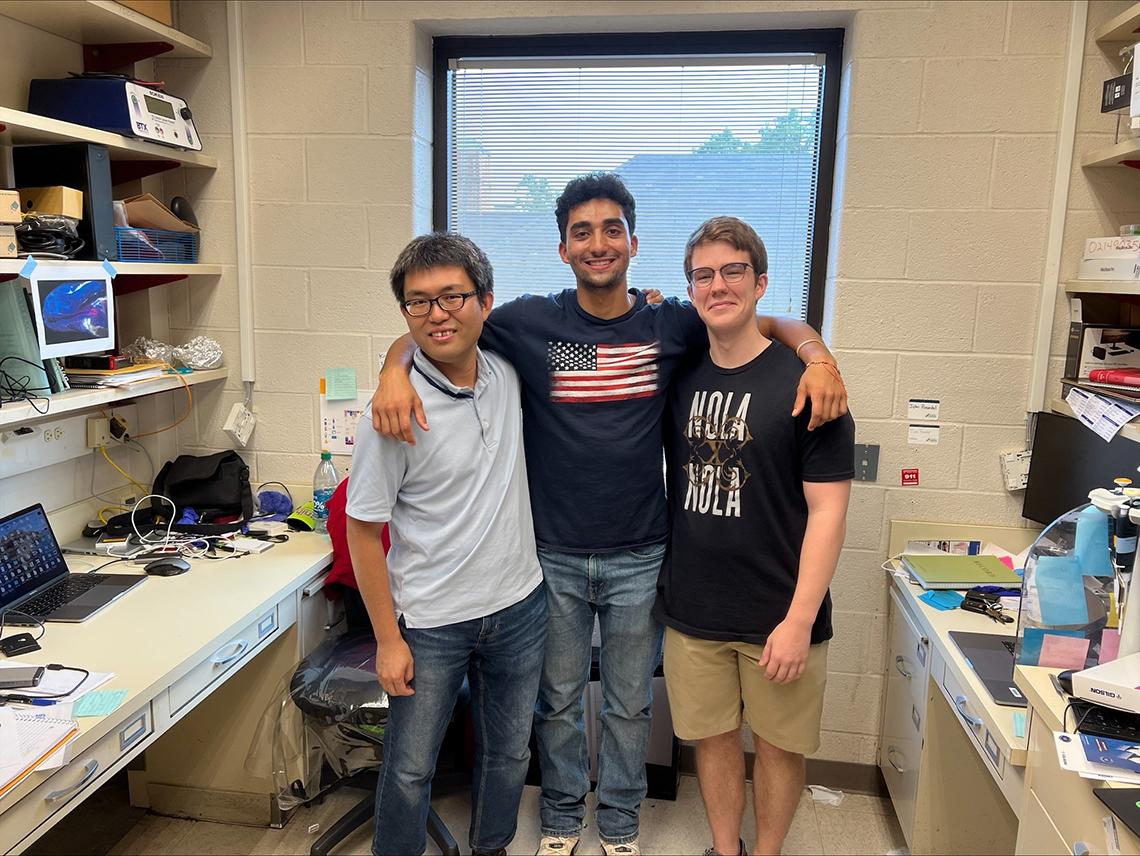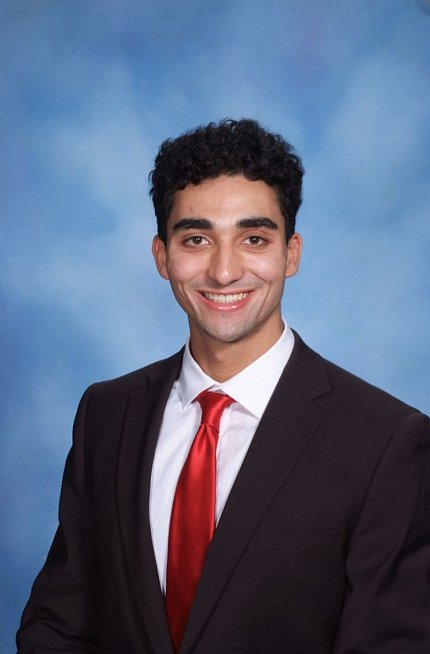Embracing Opportunities
Summer Interns Share Their Experiences

A place of learning and camaraderie—that’s how NIH’s intern programs are often described by their participants. After two years of virtual programs due to the pandemic, more and more interns got the chance this summer to explore the NIH campus and engage in hands-on research.
While some remote opportunities still existed, the majority of students relished the opportunity to conduct experiments and build connections on site. This article features two interns who enjoyed the in-person NIH experience.
Aspiring Doctor Makes the Most of NIH Internship

Amit Puthan, a driven and ambitious student, had his sights set on NIH due to its stellar reputation and ample funding for biomedical research. A student at CUNY Hunter College in New York City, Puthan initially aimed to conduct research locally, but his plans took a different turn and he found himself applying for the College Summer Opportunities to Advance Research (C-SOAR) cohort in the Intramural Research Training Award Summer Internship Program. Puthan first participated in C-SOAR virtually in 2022, and returned this summer in-person.
His interdisciplinary background as a biochemistry and special honors double major (along with a mathematics minor) provided a strong foundation for his research work. Now a recent graduate, Puthan set an ultimate goal to become a pediatric oncologist.
Under the mentorship of Dr. Kiyohito Taimatsu in the section on vertebrate organogenesis of the Eunice Kennedy Shriver National Institute of Child Health and Human Development (NICHD), Puthan delved into deep tissue staining and imaging techniques to understand pharyngeal development and cell migration in zebrafish. A typical day on campus involved running experiments, conducting literature searches and collaborating with colleagues during lunch breaks at Bldg. 31.
Puthan expressed enthusiasm for his future as a physician, acknowledging that the NIH internship offered him invaluable experiences that will strengthen his medical school applications.
“I did this program last year, but it was virtual, so I definitely expected a shift from virtual to in-person,” Puthan said. “Now that I’m on campus, I’ve been able to expand my social network [and interact with mentors and fellow lab members more easily]...I’m able to ask questions anytime I want, and interact with the lab so much more.”
Puthan emphasized the abundant opportunities and resources NIH provides its trainees and interns, including seminars from the Office of Intramural Training & Education (OITE) that offer guidance for pre-Ph.D. or pre-med students.
As he reflected on the various opportunities NIH offers, Puthan highlighted the CSOAR, Community College Summer Enrichment Program and the Undergraduate Scholarship Program as opportunities for students to gain experience in research and receive financial support. He also praised NIH’s Summer Internship Program for providing hands-on experience with research.
“The postbac program that I’m doing could be useful for either medical or graduate school,” Puthan stated. “Nowadays, medical schools are starting to emphasize biomedical research, like translational and clinical research, so having that additional experience in research…is really good for your application.”
He also expressed his desire to continue conducting research in addition to practicing medicine, possibly by engaging in laboratory work or clinical trials.
“I also realized throughout this internship that I want to continue down this path of research… [not as] the main focus of my practice, but it’s definitely something I’m interested in and I feel like I’m getting good experience in it now as an intern.”
Marketing Major Ventures into Biotech

Zene Howard, a marketing major at Ohio State University, found her way to NIH through a family friend working at the National Institute of Allergy and Infectious Diseases. She embarked on a summer internship in the Pathways program at the National Cancer Institute (NCI) as a technology analysis and marketing student intern.
Howard provides crucial support for marketing tech transfer projects led by different principal investigators. While she wasn’t assigned a single dedicated project, she engaged in a range of marketing initiatives, gaining exposure to diverse areas within the realm of biotech marketing. The absence of strict project boundaries allowed her to fluidly contribute to various endeavors.
Howard said she didn’t have many expectations coming in, but what made her summer exceptional was the on-site connection.
“What has really made my experience is the in-person factor because in our building, the majority of people are remote, but for my team to go in person every single week has just been very helpful,” Howard shared.
“You can only get so much collaboration virtually, so being able to get acclimated in person was huge for me,” she added. “I really appreciated that.”
Being in-person allowed Howard to learn from everyone, gain new mentors in this new-to-her field and foster a deep appreciation for NIH.
As her internship concluded, Howard planned to chart a course within the realm of biotechnology: She’s considering enrolling in a master’s program focused on biotech business. The NIH experience not only provided her with a solid foundation but has also ignited a passion for continued exploration in this dynamic field.
Puthan and Howard exemplify the adaptability and fervor of many interns at NIH, making the most of their experiences despite the challenges posed by the pandemic. As their internships end, students leave with newfound knowledge, networks and aspirations.
